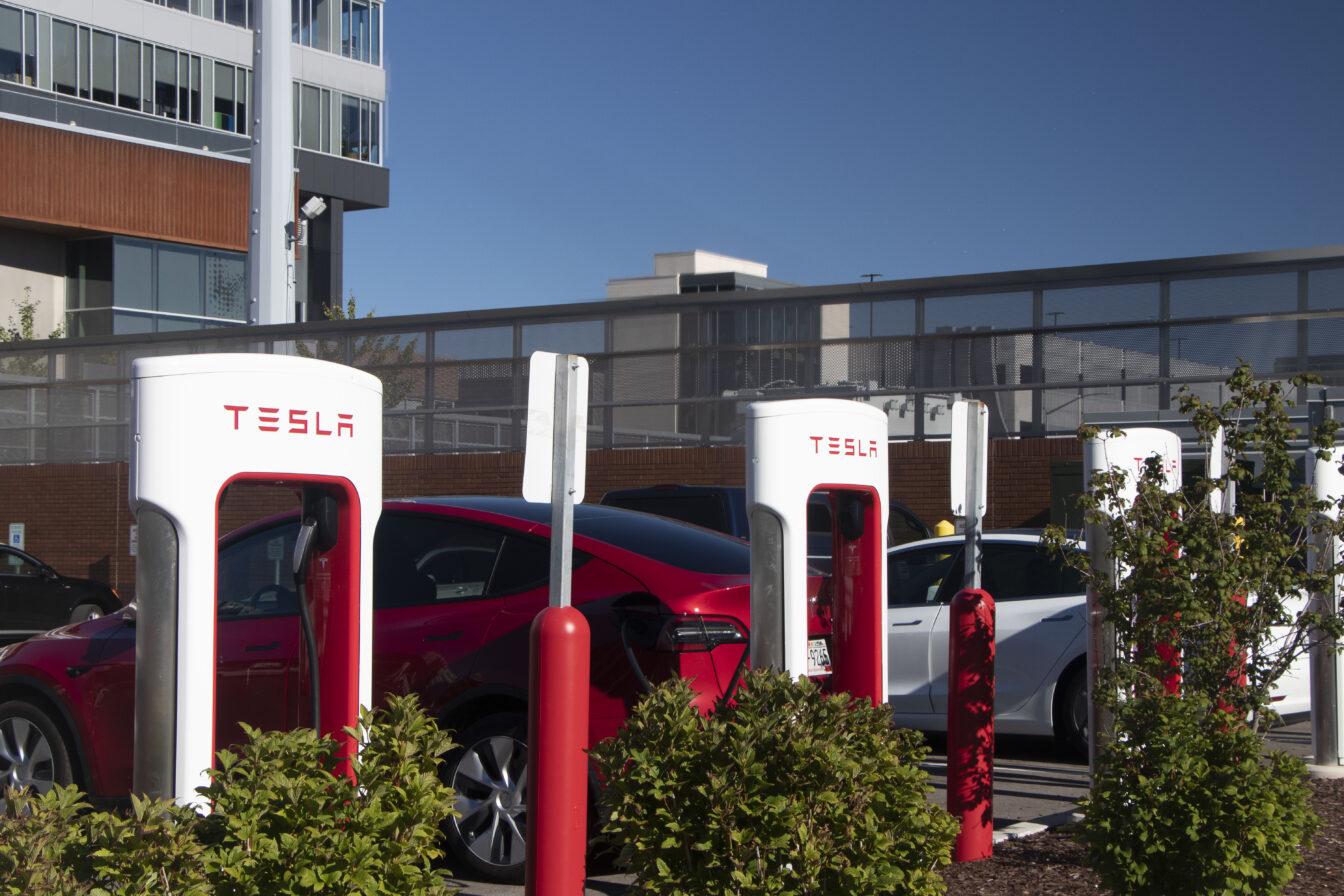Local taxi cab company Green Cab quietly shut down Nov. 24. After more than 10 years in business, the transportation company was no longer bringing in enough business to remain profitable.
Green Cab opened in 2010 as Madison’s first taxi company with a full fleet of hybrid vehicles. In 2019, Green Cab partnered with Zerology, a local transportation startup, and became the first taxi company in the country to transition to an all-electric Tesla fleet.
Shree Kalluri, the owner of Zerology, hoped to cut Madison’s carbon emissions through the use of electric vehicles. The move was widely praised by local climate leaders, including Lt. Gov. Mandela Barnes, according to the Wisconsin State Journal.
The next year, another one of Kalluri’s companies, Mobility Transformation Inc., bought Green Cab and started using Chevy Bolts and Teslas for a cheaper, all-electric option. Dane County identified Zerology as a 2020 Climate Champion.
Following Green Cab’s closure, the city has just two local taxi companies — Madison Taxi and Union Cab. According to the Wisconsin State Journal, Union Cab had an outgoing message on its phone system Nov. 25 explaining that reduced taxi availability in Madison may lead to increased wait times.
Starting in March 2022, Green Cab focused mainly on providing rides to medical appointments. The absence of this service could leave customers who need critical healthcare assistance without transportation, according to Christine Hamilton, a former senior logistics coordinator of Green Cab’s mobile app.
The significance of Green Cab’s role in the community makes its closure all the more impactful. Ultimately, Green Cab’s termination represents more than the loss of a local business.
One factor that played a role in the closure is competition within the transportation industry.
In recent years, companies like Uber and Lyft have dominated the ride-sharing landscape. Such companies are at an advantage when owners do not have to pay the same overhead costs as taxi companies. For example, Uber drivers are independent contractors who provide their own vehicles and do not receive benefits.
While the Biden administration has proposed legislation to tighten this contractor classification, under Trump-era legislation, companies like Uber have very little federal regulation compared to traditional taxi companies. This gives them a distinct advantage in operating in the free market.
The success of Uber represents the United States’ broader transition to a gig economy. According to the Pew Research Center, 16% of Americans have participated in an online gig platform, with lower-income, younger adults making up most of this demographic. Gig workers cite extra income and job flexibility as motivation to take on these jobs.
On the other hand, some oppose the gig economy for its lack of oversight. The small but growing group of Americans who rely on income from gig jobs have little legal precedent to demand better working conditions.
Companies are increasingly hiring independent contractors to avoid the costs that come with offering full-time employment, according to Forbes. As a result, gig workers lack fundamental aspects of job security, like regular schedules and fair wages.
The gig economy can also profoundly affect the operation of traditional small businesses. Larger companies can absorb the costs of offering more flexible schedules for their employees, but small businesses may not have the capital or labor to compete with this standard.
Further, Green Cab’s closure represents a disappointing attempt to reduce carbon emissions. The initial move to an all-electric fleet was a $5 million investment in sustainable transportation options, according to the Wisconsin State Journal.
For many, the investment was a promising effort to reduce carbon emissions. But the costs of adopting green transportation practices ultimately could not be offset by Green Cab’s revenue. This raises concerns about the accessibility of vehicles like Teslas for everyday citizens.
In the current economic climate, there is a discrepancy between the people interested in electric vehicles, and those who have the means to purchase them. The younger people who tend to tout the environmental benefits of Teslas lack the income to buy them, according to NPR.
While this could change as people age and accumulate capital, electric vehicles may not be the immediate solution we need to reduce carbon emissions. The vision of an all-electric taxi company may be too unrealistic to be implemented. Not only is that disappointing, but alarming, as it means Madison has to find an alternative to reduce carbon emissions.
The economy is evolving in multiple ways, and as was seen with the closure of Green Cab, it can have devastating impacts on local businesses and communities. The gig-oriented nature of transportation companies and the demand for transitions to green energy creates a competitive environment for traditional, local businesses.
As the economy is changing, special attention must be paid to the impacts on local businesses that operate on a different scale than larger organizations. Small businesses may become collateral damage in a gig economy that is simultaneously experimenting with sustainability.
Celia Hiorns (hiorns@wisc.edu) is a sophomore studying journalism and political science.


